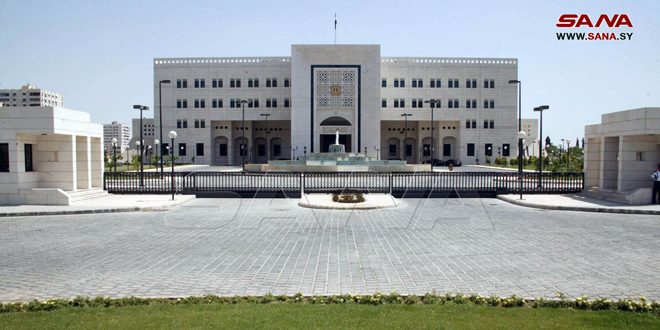Syria swept away the last remnants of the French role in the Middle East
Bassam Hashem
Editorial
Talking about French policy cannot help, but call for a fair amount of cynicism, and sarcasm. From the Middle East to North Africa, from Central Europe to Ukraine, to the domestic arena, France appears to be the wreck of a superpower, even within NATO it appears to be a lost member, lacking dignity and status. Where is the “French exception”? where is the “strategic independence” that shook our heads throughout the last decades of the last century? Why all this fluctuation and shift in discourse and strategy? What forces a permanent member of the Security Council to re-show its old colonial face in this ugly way? In the Middle East, France crossed the limits of subordination and submission to choose the complete “footnote” of American and Anglo-Saxon policies. The war on Syria has swept away the last remnants of the French role in the region. Contrary to what it presents itself as the legitimate heir to the Age of Enlightenment and multiculturalism, France has thrown itself into the arms of an undeclared alliance with “ISIS” and “Al-Qaeda” in Syria. Since 2011, French policies have recorded failure after failure in Syria. It has always stood on the wrong side, supporting an extremist “opposition” that was unable to assert itself except through armed sectarian violence. Ironically, French support for the “Arab Spring” led not only to a power vacuum, chaos, and fighting in many Arab countries, but also to the arrival of “Wahhabis” (“Al-Qaeda” and “ISIS”) to France, with all their accumulated combat experience from the most dangerous “theaters of operations” in the Middle East and North Africa… France, under the banner of political and humanitarian asylum, has become a stronghold for extremist fundamentalists who are not interested in any loyalty, even rhetorical, to the “infidel” French state, which they place on the brink of a civil war that could explode at any moment. For years, France invented conflicts and interests for itself: it supported the separatists in Raqqa, protected al-Julani with a network of its intelligence services, invented a trivial opposition out of the “non-existence” of personal surrender, political mercenaryism, and the corruption of some businessmen who left Syria in the hope of returning to it on the backs of French companies. But things were moving from failure to failure, to the point that France even urged the United States to bomb Syria. There was no irony in the matter, as the political confusion had practically made France lose its senses. In the Middle East, France – which no longer has a significant voice – wants to maintain its influence by fanning the flames of conflict in the region. Although France is trying to assert itself as a privileged mediator, France’s main weakness lies in the fact that it does not truly embody a counterweight to American, Russian, or Chinese policy. France no longer has any influence in Lebanon, even formally, and it lacks the slightest control over the Arab-Israeli conflict, which Operation “Al-Aqsa Flood” confirmed would remain the core issue in the region. After declaring its strong bias towards Israel during the first days, it tried to soften its position by talking about aid, Humanity, and rejection of “killing the elderly”. But no one cares about the French, whether their voice is supportive or condemning. In Africa, after the French Treasury was using African reserves as if they were purely French capital, the “unexpected” catastrophe occurred with the collapse of French monetary dominance, and the loss of exciting uranium deals. African countries fell like dominoes, rejecting French hegemony over their financial, security affairs… and everything was in vain, contrary to what France had wanted when it led “from the front” military operations to change the regime in Libya. Paris was unable to achieve a greater share in Libyan oil production, nor was it able to increase its influence in North Africa, and it did not bury what tickled Gaddafi’s imagination by creating an African currency to replace the CFA franc printed in France, even after his martyrdom. There are also doubts about France’s continued status as a major European power. In Europe, which has been weakened by Britain’s exit from the Union, the Elysee Palace wants to make the European voice heard in the face of what it calls “the Russian threat in Ukraine”. But the room for maneuver is very narrow, it is a matter of finding sensitive and difficult equations between emphasizing privacy, taking into account Atlantic commitments, and building a strategic independence that is basically unavailable in the face of a world that is increasingly free from unipolarity just as it is becoming more polarized. In addition, the possibility of France sliding into internal cultural conflicts, or a popular class revolution, may cause unprecedented political earthquakes, may make France itself a hateful nightmare, and not a force that can be reassured!! What keeps France, until further notice, as a “nominally” superpower are only the permanent seat in the Security Council, and the nuclear military force. But this status is declining, and it is marginalized even by the American and British allies themselves. As for the rest of the French global influence, it is ensured by the French presidencies themselves.. Indeed, it is cynicism and sarcasm

